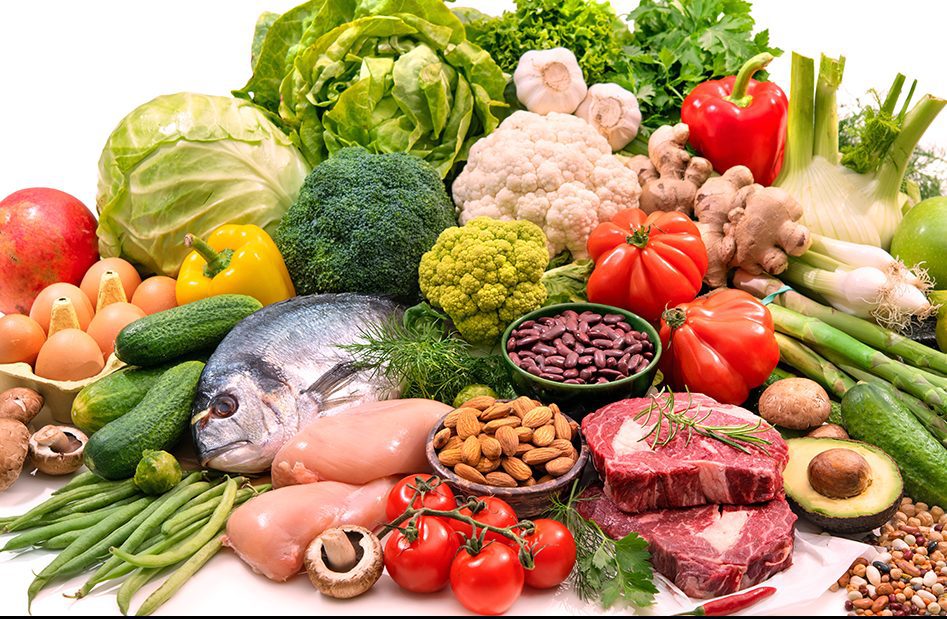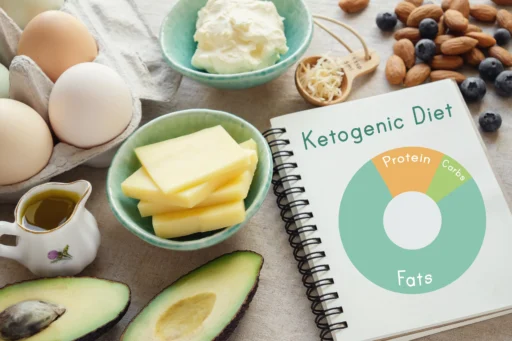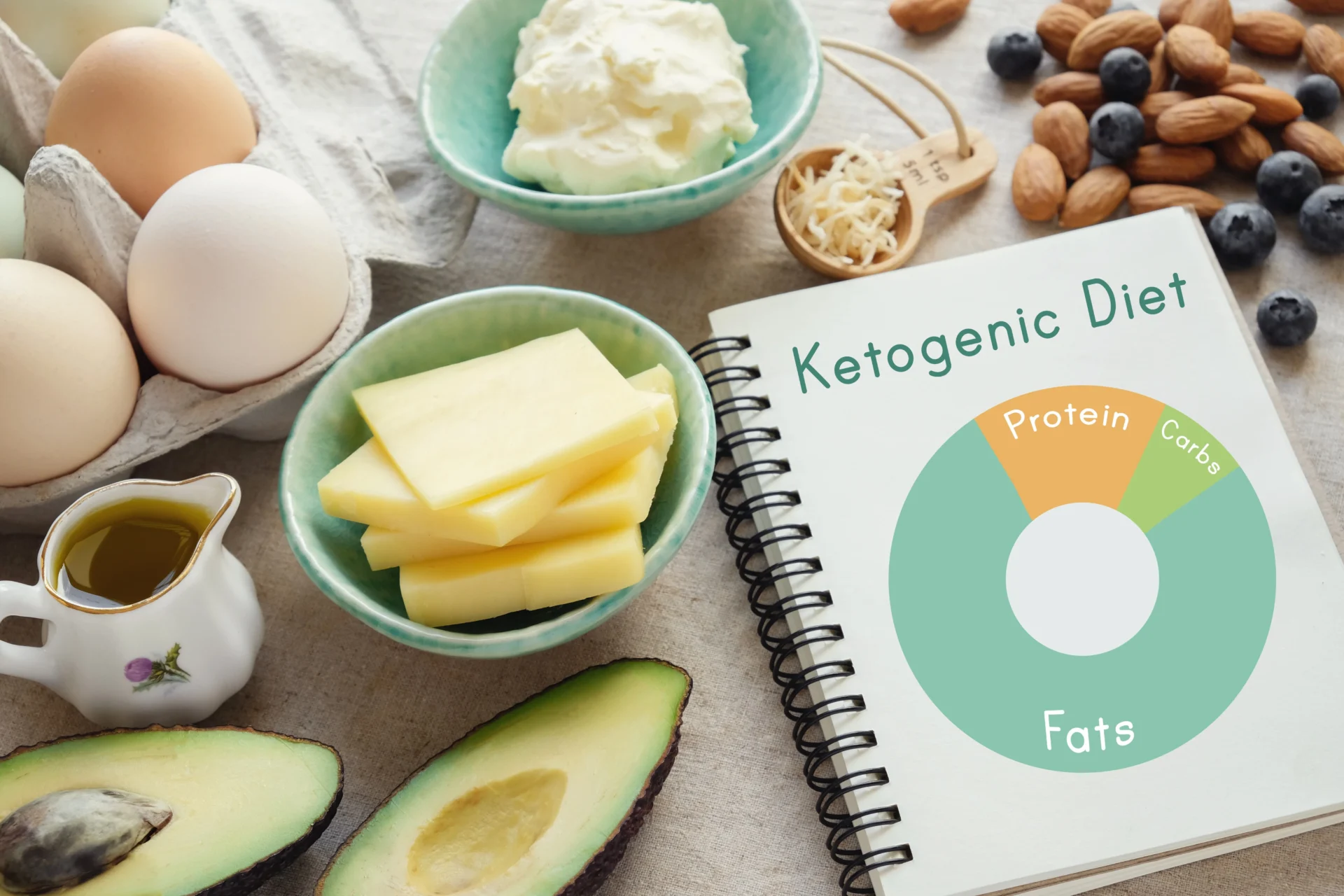The ketogenic diet, sometimes known as the “keto” diet, has become extremely popular in recent years, mostly because of its ability to help people lose weight and other health advantages. However, what is the keto diet actually, how does it function, and what are the possible benefits and drawbacks? Let’s examine this low-carb, high-fat diet in detail to learn about its foundations and potential health risks.

The Ketogenic Diet: What Is It?
The ketogenic diet is an extremely low-carb, moderate-protein, high-fat diet. This usually means that you should get 70–75% of your daily energy from fat, 25–25% from protein, and only 5–10% from carbs. The objective is to induce ketosis, a state in which lipids replace carbs as your body’s main fuel source.
Your body runs out of glucose, or sugar, when you cut back on your carbohydrate intake. Rather, it begins to convert fats into chemicals known as ketones, which your body and brain use as its primary energy source.
Essential Ideas for the Keto Diet
- High-Fat Consumption: The main components of a ketogenic diet are foods like avocados, nuts, seeds, butter, olive oil, and fatty seafood (like salmon).
- Low Carbohydrate: Most keto diets limit daily carbohydrate intake to 20–50 grams, which limits the amount of carbohydrates that can be found in foods like grains, starchy vegetables, and most fruits.
- Moderate Protein: To avoid interfering with ketosis, protein consumption is kept to a minimum and is often obtained from meats, poultry, and eggs.
How Do You Follow a Keto Diet?
The primary method of action for the ketogenic diet is to induce a state of ketosis, in which the body uses fat rather than carbs as its primary energy source. Your liver converts fats into ketones, which your body uses in place of glucose, when you enter ketosis.
Here’s how it operates in detail:
- Restricting Carbs: When insulin levels are low, the body turns to stored fat for energy.
- Fat Burning: Ketones are created in the liver during the breakdown of fat.
- Ketosis: Your body enters this state, when fat is used mostly as energy, after ketones are in your bloodstream.
Unlike other diets, this one uses glucose (derived from carbohydrates) as an energy source. The low carbohydrate consumption of a ketogenic diet forces the body to use its fat stores more effectively.

Advantages of a Ketogenic Diet
- Weight Loss: Since the body becomes more adept at burning fat for energy, the ketogenic diet is quite helpful in helping people lose weight. Many people lose weight quickly at first, which is frequently related to water loss, and then gradually lose fat.
- Better Blood Sugar Control: By cutting back on carbohydrates and stabilizing insulin levels, the keto diet can assist those with type 2 diabetes or insulin resistance better control their blood sugar levels.
- Improved Focus and Mental Clarity: Many people who follow the ketogenic diet report having better focus and mental clarity because ketones give the brain a steady supply of energy instead of the glucose-induced energy spikes.
- Decreased Cravings and Hunger: It is thought that ketones reduce cravings and hunger, which makes it simpler to follow a diet without feeling deprived.
- Heart Health: By increasing good HDL cholesterol and lowering triglycerides, the keto diet, when it is centered on healthy fats (such as olive oil, almonds, and fatty fish), may be able to improve cardiovascular health.
- Potential Therapeutic Advantages: The ketogenic diet was first created in the 1920s to treat childhood epilepsy. More recently, studies have looked into its possible advantages for treating various neurological diseases like Parkinson’s and Alzheimer’s.
Issues & Drawbacks with the Keto Diet
The ketogenic diet has several advantages, but there are also possible drawbacks, particularly if improperly followed.
- Keto Flu: Some people report having flu-like symptoms during the first few days of the diet, including headaches, nausea, irritability, and lethargy. This is the body’s adaptation to using fat for energy rather than carbohydrates.
- Deficiencies in Nutrients: If you eliminate a lot of fruits, grains, and vegetables, you may be deficient in fiber, vitamins, and minerals. Constipation or other digestive problems may result from this.
- Heart Health Concerns: Although some people’s cholesterol levels can be raised by the ketogenic diet, an excessive dependence on bad fats (such as processed meats, fried foods, and excessive amounts of saturated fat) may have a detrimental effect on heart health.
- Sustainability: Maintaining a ketogenic diet over the long run might be challenging due to its tight guidelines. Even the most self-controlled adherents can face difficulties with social gatherings, eating out, and desires for carb-rich meals.
- Potential Effect on Exercise Performance: Because glycogen is the body’s main source of energy, some athletes and physically active people may first find it difficult to engage in high-intensity exercises.
Foods to Include in a Ketogenic Diet?
The following is a list of foods that are suitable for a ketogenic diet:
- Fats and Oils: butter, ghee, coconut oil, avocado oil, and olive oil.
- Meats: Turkey, lamb, hog, chicken, beef, and fatty portions of meat.
- Fish include sardines, mackerel, salmon, and other oily fish.
- Low-Carb Vegetables: Bell peppers, cauliflower, broccoli, spinach, and kale.
- Dairy: butter, cheese, cream, and, in moderation, full-fat yogurt.
- Nuts and Seeds: flaxseed, chia seeds, walnuts, and almonds.
- Whole eggs from hens grown on pasture.
- Items to Steer Clear of
- Sugary foods include fruit juices, cakes, ice cream, candy, and soda.
- Bread, pasta, rice, potatoes, and cereals are examples of grains and starches.
- Fruit: Most fruits, with the exception of a few minor amounts of berries, particularly bananas, apples, and oranges.
- Legumes include peas, beans, chickpeas, and lentils.
Are You a Good Fit for the Keto Diet?
Although the ketogenic diet is beneficial for many health conditions and is useful for weight loss, not everyone should follow it. Before beginning any restrictive diet, it is imperative to speak with a healthcare professional, particularly if you have any underlying medical concerns.
People who want to lose weight quickly or who are having trouble controlling their blood sugar levels may find the keto diet very beneficial. To maintain ketosis and satisfy nutritional requirements, though, takes commitment and thoughtful meal preparation.
In the end, the keto diet is only one method of eating healthily; success will vary depending on personal tastes, objectives, and medical requirements.
In summary
It’s critical to comprehend how and what the ketogenic diet comprises before committing to it, as it can be an effective strategy for boosting certain health markers and helping people lose weight. The keto diet causes your body to burn fat by prioritizing healthy fats, moderate amounts of protein, and low amounts of carbohydrates. This can have both potential advantages and disadvantages. As long as you approach the keto diet with the necessary information and care, it can be worth contemplating if your goal is to lose weight or enhance your general health.







